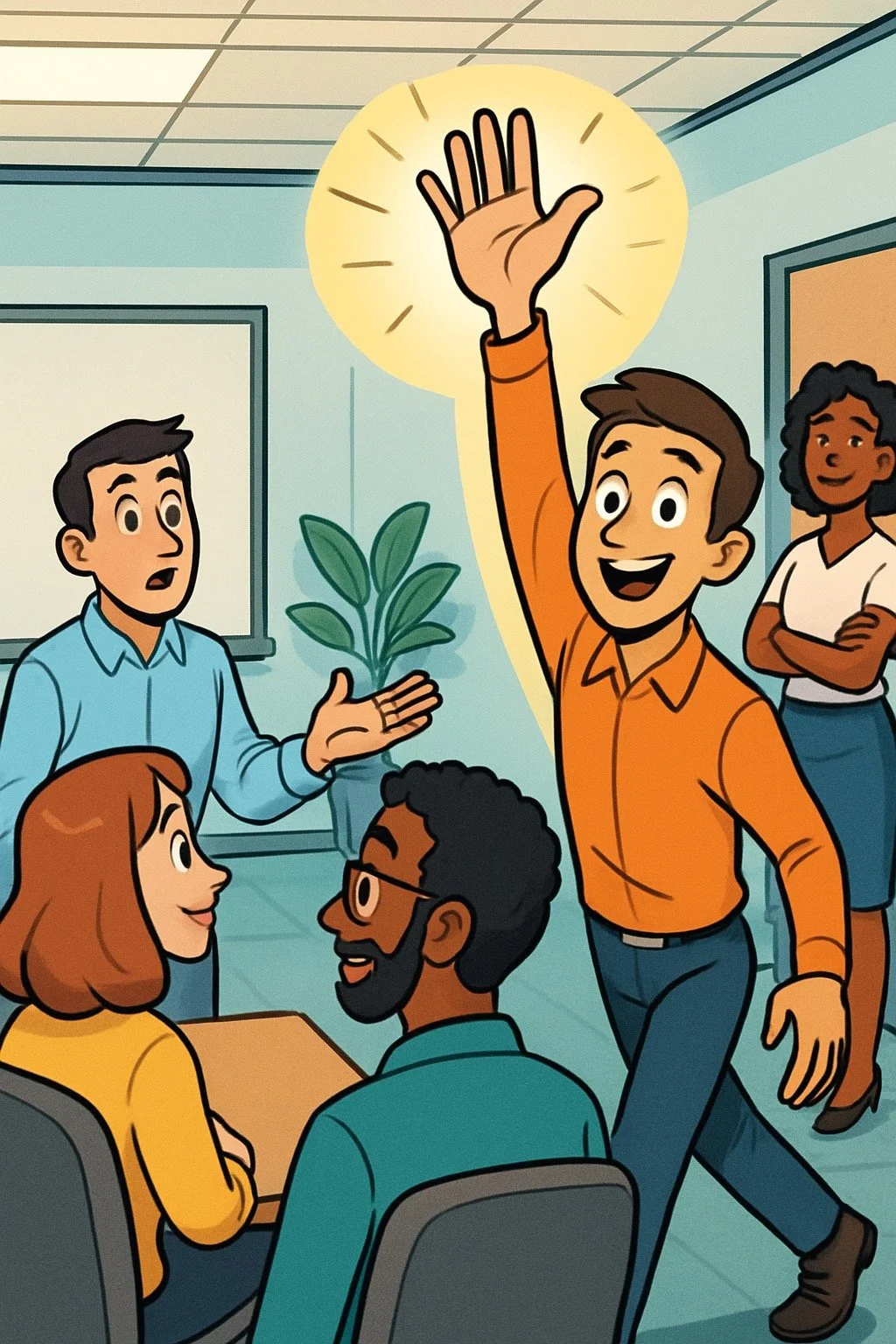Blessed Are the Monkeybearers
Earlier this month I was named to the North Carolina governor’s AI Leadership Council (woohoo!). Since then I’ve been on a reading binge to avoid embarrassing myself among a bunch of industry leaders and PhD’s.
One discovery is that you could pretty much spend all day every day reading the opinions of different smart people about where AI is going and when. Based on what I have read so far, here are my conclusions: AI will change everything about how we go about our daily lives and work — unless it doesn’t. It will leave huge numbers of people unemployed or underemployed — or maybe not. And it will suck up huge amounts of energy in the process — either accelerating the development of cheap new energy sources or causing prices for everyone to skyrocket.
So you can understand my gratitude when I found, this week, amid the bipolar punditry, something that I felt confident was correct in one of the newsletters I subscribe to. It was sort of about “how to keep your job in an AI world,” but it also has applications way beyond AI, including a few worth sharing.
Jeremy Utley is a Stanford professor whose weekly column, “Methods of the Masters,” focuses on how to integrate AI more seamlessly into your work and personal life.
This week Utley notes that there is one thing AI is unlikely to be able to do anytime soon: it can’t write prompts for itself.
He quotes a recent interview with OpenAI CEO Sam Altman, with Altman talking about Large Language Models: “They don’t do anything unless you ask. They’re just sitting there waiting. They don’t have a sense of agency or autonomy.”
For Utley, this is a “billion dollar insight hiding in plain sight.”
“In an age of ‘agentic AI,’ “ he writes, “the people who win will be the ones who ask first. The ones who be the prompt.”
He goes on to encourage us to be the person in our company who figures out how to get AI to solve problems others are struggling with. He tells the story of the mindset Josh To, now head of Meta’s Orion AR glasses project, used to climb his way up the corporate ladder. When To started working in the company, with each hour of his time, he would find a way to get his assigned work done in 45 minutes. Then he would spend the next 15 minutes finding problems nobody else had assigned him. He became known as a problem-solver, someone who could see the big picture at the company.
In an AI world, we will likely be able to be able to execute more tasks more quickly. The question is: What we do with that extra time? Utley’s advice: think of the NEXT thing, the UNASSIGNED TASK. Then he encourages us to be the person who figures out how to put AI to work solving that problem.
Agreeing to be the person who puts the monkey on your back could be a kind of work superpower (Image from OpenAI/Sora)
Be the person, Utley says, who steps forward and puts the monkey on their back.
***
There’s a reason we created the analogy of the “monkey on the back” – most of us will do whatever we can to avoid volunteering to take on extra work that hasn’t been assigned. And yet in almost every context the monkey bearers of the world tend to get ahead.
When I left television to take a job working for a Governor, I knew virtually nothing about government or politics. There was a new rhythm, a new perspective, a new vocabulary. Sooo many acronyms. I told one of the old hands about my problem and his advice was simple:
“Write the memo.”
Nobody wanted to have to write the boring memo summarizing what had just happened and what needed to happen next. So if I agreed to write it, he said, I’d take the burden off someone else. To write the memo, I’d also have to ask followup questions to make sure I actually understood the nuances of what had happened. And, I discovered, to organize the summary and followup, I’d also have to start thinking strategically about what should happen next and who should do what. I’d see early on when there was something exciting I could do to help. The “memo monkey” was on my back, but it was more of a jet pack.
Nobody wants to write the memo. That’s why it pays to volunteer to do it (Image generated from deepai.org)
Once I internalized the image of myself as the one who did the thing others didn’t want to, who tried to imagine the next problem and how to solve it, it helped me realize that maybe I could do that with my whole job.
Volunteers confuse other people (image generated by OpenAI’s Sora).
Maybe, I discovered, I could imagine a new job that nobody else had thought of, one that I was excited about and solved a problem nobody else wanted to work on. I’ve written about the process I used here. It worked eight times over the rest of my career, when I took on a “monkey” that nobody else wanted to see or deal with -- and put it on my back. And each time I stepped forward, I got to do a job that was a little more interesting, with a little more responsibility.
I won’t even try to pretend that every time I was the most qualified person to do the new job. And I won’t pretend I was the only person to see the problem I proposed to solve. But most of us are better at seeing problems than imagining a solution.
We’d rather say “here’s what’s wrong” instead of “here’s an idea,” and “somebody should fix that” instead of “I could fix that.”
What’s harder for me is applying the same principle to my personal life. When I have a beef with someone, my tendency is to see the standoff as their problem. Then I wait for them to make the first move toward reconciliation. I’d prefer to complain to others or to stew in my annoyance, then sit on my hands and pout.
That’s exactly the opposite of what I am supposed to do. In the beatitudes, we learn that all the props go to those who take the affirmative step to be “peacemakers” and heal wounds, without waiting for someone else to initiate.
So blessed are the peacemakers and monkeytakers. May all of us get better at being both.
-Leslie
Notes:
Members and charge of NC Governor’s AI Leadership Council: https://it.nc.gov/about/boards-councils/ai-leadership-council
You can find Utley’s post, “Be the Prompt,” here: https://www.jeremyutley.com/blog/be-the-prompt
Summary of political murders since 1975 by political orientation of killer:
https://www.alexnowrasteh.com/p/deadly-politically-motivated-violence
My tribute to proactive “Piercy People”: https://www.boneconnector.com/writings/spirit-piercy-people
“Blessed are the peacemakers” (NIV) comes in the Beatitudes, Matthew 5:3-12: https://www.bible.com/bible/111/MAT.5.9.NIV
Nat King Cole’s recording of “Straighten Up and Fly Right,” about a buzzard with a monkey on its back, has little to do with today’s post, but it is a great song: https://youtu.be/6fVaP6dM1fs?si=AlJ6FTUNaaTjnQE4


